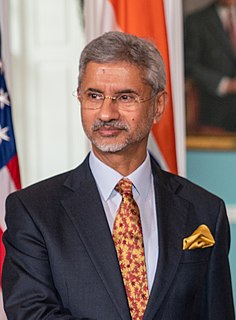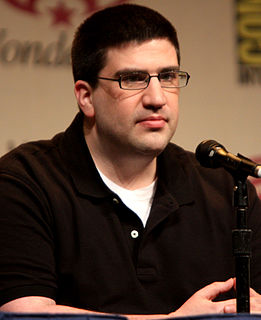A Quote by Richard Branson
It's a common misconception that money is every entrepreneur's metric for success. It's not, and nor should it be.
Quote Topics
Related Quotes
Success for me is going beyond money and power, and measuring success based on a third metric - one founded on well-being, wisdom, our ability to wonder and to give back. Money and power by themselves are a two-legged stool. You can balance on them for a while, but eventually you're going to topple over. Basically, success the way we've defined it is no longer sustainable.
I actually think being an entrepreneur is a state of mind. If you're going to be an entrepreneur, my thesis is that you have to sacrifice everything for some period in your life to be successful. You have to be myopic and completely focused and unbalanced in every way. Once you've achieved success, you're free to do whatever you like.
What's the third metric beyond money and power? I think it's a combination of wellbeing and wisdom. Because the problem also with defining success just in terms of money and power means that people feel that they have to work around the clock, burn out, and the result is people making terrible decisions.
If any refuse to obey the common laws and orders of the ship concerning their common peace or preservation; if any shall mutiny or rise up against their commanders and officers; if any should preach or write that there should be no commanders or officers because all are equal in Christ, therefore no master or officers, no laws nor orders, nor corrections nor punishments - I say I never denied that in such cases, the commander may judge, resist, compel, and punish such transgressors according to their deserts and merits.
Don’t just climb the ladder of success - a ladder that leads, after all, to higher and higher levels of stress and burnout - but chart a new path to success, remaking it in a way that includes not just the conventional metrics of money and power, but a third metric that includes well-being, wisdom, wonder and giving, so that the goal is not just to succeed but to thrive.
Of course (said Oryx), having a money value was no substitute for love. Every child should have love, every person should have it. . . . but love was undependable, it came and then it went, so it was good to have a money value, because then at least those who wanted to make a profit from you would make sure you were fed enough and not damaged too much. Also there were many who had neither love nor a money value, and having one of these things was better than having nothing.
"Why is the creative entrepreneur the riskiest type to be?" I asked. "Because being creative means you are often a pioneer. It is easy to copy a successful and proven product. It is also less risky. If you learn to innovate, create, or invent your way to success, you are an entrepreneur creating new value rather than an entrepreneur who wins by copying."
It's a great story for us whenever an entrepreneur makes a crazy amount of money and we get to tell the world about it. For the entrepreneur? Not so much. Hitherto unknown relatives, entrepreneurs seeking angel investments, money managers and supposed baby-mamas all come out of the woodwork with dollar signs in their eyes.
If your goal is to make money, becoming an entrepreneur is a sucker's bet. Sure, some entrepreneurs make a lot of money, but if you calculate the amount of stress-inducing work and time it takes and multiply that by the low likelihood of success and eventual payoff, it is not a great way to get rich.
































